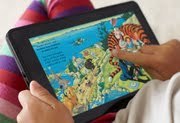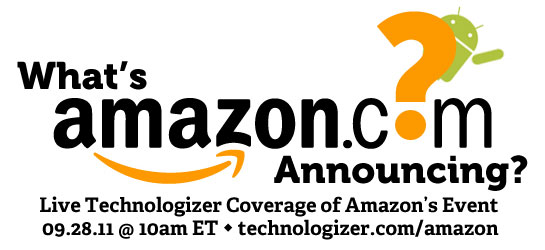
The new Amazon.com Kindles–the Fire and Touch–are out, and Black Friday has come and gone. Amazon is delighted with how well they sold:
“Even before the busy holiday shopping weekend, we’d already sold millions of the new Kindle family and Kindle Fire was the bestselling product across all of Amazon.com. Black Friday was the best ever for the Kindle family – customers purchased 4X as many Kindle devices as they did last Black Friday – and last year was a great year,” said Dave Limp, Vice President, Amazon Kindle. “In addition, we’re seeing a lot of customers buying multiple Kindles – one for themselves and others as gifts – we expect this trend to continue on Cyber Monday and through the holiday shopping season.”
Four times last year’s sales, eh? Impressive! But we don’t really know how impressive, since Amazon never disclosed how many Kindles it sold last year. The company keeps bragging about its e-reader sales without ever mentioning numbers.
2010 example:
“We’re grateful to the millions of customers who have made the all-new Kindle the bestselling product in the history of Amazon — surpassing Harry Potter 7,” said Jeff Bezos, Amazon.com founder and CEO. “We’re seeing that many of the people who are buying Kindles also own an LCD tablet. Customers report using their LCD tablets for games, movies, and web browsing and their Kindles for reading sessions. They report preferring Kindle for reading because it weighs less, eliminates battery anxiety with its month-long battery life, and has the advanced paper-like Pearl e-ink display that reduces eye-strain, doesn’t interfere with sleep patterns at bedtime, and works outside in direct sunlight, an important consideration especially for vacation reading. Kindle’s $139 price point is a key factor — it’s low enough that people don’t have to choose.”
2009:
Amazon.com, Inc. (NASDAQ:AMZN) today announced that November is already the best sales month ever for Kindle, even before Cyber Monday. Kindle continues to be the most wished for, the most gifted, and the #1 bestselling product across all product categories on Amazon. The latest generation Kindle – just released in October – is $259 and available for immediate shipment today at www.amazon.com/kindle.
Earlier in 2009:
Amazon.com today announced that more new generation Kindles were ordered in the first four weeks of availability than in the same timeframe following any other Kindle launch, making the new Kindles the fastest-selling ever. In addition, in the four weeks since the introduction of the new Kindle and Kindle 3G, customers ordered more Kindles on Amazon.com and Amazon.co.uk combined than any other product, continuing Kindle’s over two-year run as the bestselling product across all the products sold on Amazon.com. The new Kindles started shipping to customers today–two days earlier than previously announced.
…and so on. Always with the triumphant claims about best-sellerhood, but never any specific figures that would allow us to judge for ourselves.
When I wrote about this before, I wondered why Amazon wasn’t forthcoming with hard data. At the time, I thought maybe it was because e-readers were a relatively small product category compared to blockbusters like the iPod. Perhaps Amazon didn’t want to point that out. But with the arrival of the Kindle Fire, I’m dying to know something very specific: How do its sales compare to those of the iPad?
Apple doesn’t always disclose sales figures for its products. As far as I know, though, it doesn’t issue press releases trumpeting their success without large numbers to back up the bragging. For instance, we know that it sold 300,000 units of the original iPad on its first day. But we don’t know whether the Kindle Fire sold in that ballpark, or much less. (I’m assuming we would know if it outsold the iPad. But maybe not.)
I can’t think of anything comparable to Amazon’s ongoing celebration of Kindle sales without any disclosure of what they actually are. It’s clear that Kindles sell well. But until the company fesses up, I’ll always have the sneaking suspicion that they might not be selling quite as well as some people think.
Or as Steve Jobs put it in a 2009 interview with David Pogue, “Usually if you sell a lot of something, you want to tell everybody.”
[Image courtesy of Bigstock.]



 Amazon compromised on several hardware features of its
Amazon compromised on several hardware features of its  Amazon Kindle Fire tabletAfter months of hype, Amazon today announced the Kindle Fire, a 7-inch tablet with a $199 price tag. Amazon also refreshed its line of e-readers with a $149 Kindle Touch 3G, a $99 Kindle Touch without 3G, and a non-touch $79 Kindle.
Amazon Kindle Fire tabletAfter months of hype, Amazon today announced the Kindle Fire, a 7-inch tablet with a $199 price tag. Amazon also refreshed its line of e-readers with a $149 Kindle Touch 3G, a $99 Kindle Touch without 3G, and a non-touch $79 Kindle.